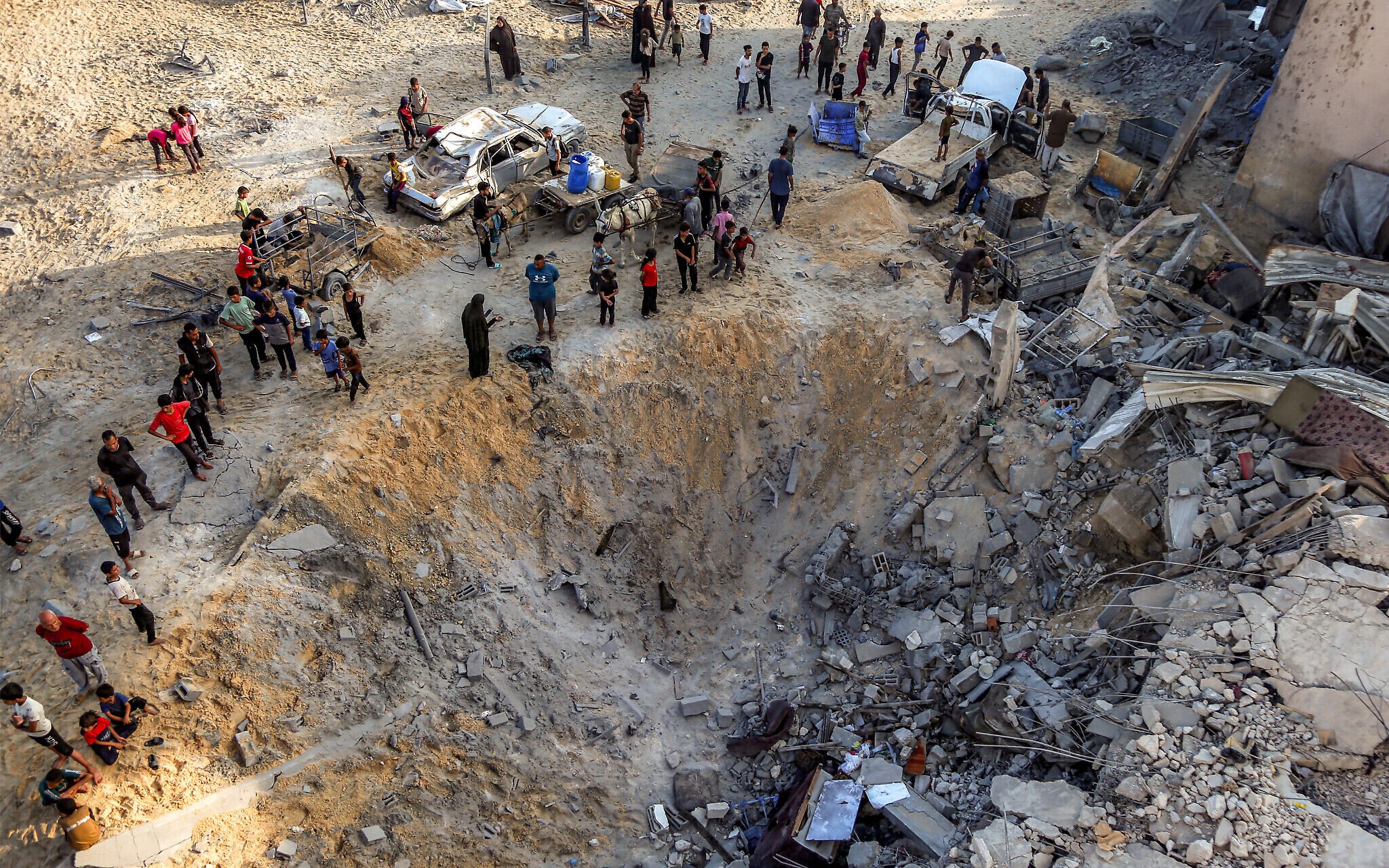Shocking Accusations: Are Israeli Human Rights Groups Declaring Genocide in Gaza?

Is Israel committing genocide in Gaza? This explosive question is at the heart of a newly released report by B’Tselem and Physicians for Human Rights, marking a significant moment as these prominent Israeli organizations join international voices in leveling serious accusations against the state of Israel.
After 661 harrowing days of armed conflict, the report asserts that Israel is engaged in coordinated actions aimed at destroying Palestinian society in Gaza, an allegation so severe that it shakes the very foundation of how the world views the ongoing war. The report claims that statements from high-ranking Israeli officials and military leaders reveal a shocking goal: the systematic destruction of a population.
While international critics have long accused Israel of genocide, this is the first time leading Israeli human rights organizations have taken a stand on this matter. The organizations argue that the brutal shift in policy following Hamas's October 7 attack—where approximately 1,200 Israelis lost their lives—shows a disturbing transition from oppression to annihilation. B’Tselem’s statement highlights the catastrophic outcomes of Israel’s actions, describing them as deliberate and coordinated acts aimed at eradicating Palestinian existence.
Despite widespread accusations, Israel maintains that it is not committing genocide. The Israel Defense Forces have consistently claimed they’re taking extraordinary measures to protect civilians in Gaza while accusing Hamas of using them as human shields. However, the rising toll of civilian casualties in Gaza raises alarming questions about the veracity of these claims. Reports suggest that nearly 60,000 people in Gaza have died or are presumed dead since the escalation of violence began—a figure that cannot be independently verified and does not differentiate between combatants and civilians.
In response to the allegations, Israeli Prime Minister Benjamin Netanyahu has dismissed claims of genocide as baseless and antisemitic. Yet, as the humanitarian crisis deepens and reports of starvation and lack of medical supplies flood in, the pressure on Israel from both local and international communities is mounting. The Physicians for Human Rights report sheds light on the dismantling of essential services in Gaza, including healthcare and access to clean water, arguing that these conditions are intentionally inflicted as part of a genocidal strategy.
Yuli Novak, executive director of B’Tselem, emphasizes that the evidence of systematic destruction and mass displacement is undeniable: “For the past 22 months, we have witnessed unprecedented destruction of civilians, deliberate starvation, and mass forced displacement.” The report calls for increased international intervention, claiming that the responsibility to act lies not only with Israel but also with global leaders who must find ways to stop ongoing crimes in Gaza.
As the war continues, the discourse surrounding Israel's actions has changed irrevocably. Calls for accountability from within Israel itself challenge the prevailing narrative among many who see any criticism as anti-Israel sentiment. The taboo of labeling the actions in Gaza as genocide is now being confronted by voices that demand recognition of the reality faced by Palestinians. Will this pivotal moment lead to greater awareness and action, or will the accusations be dismissed amid the chaos?

























